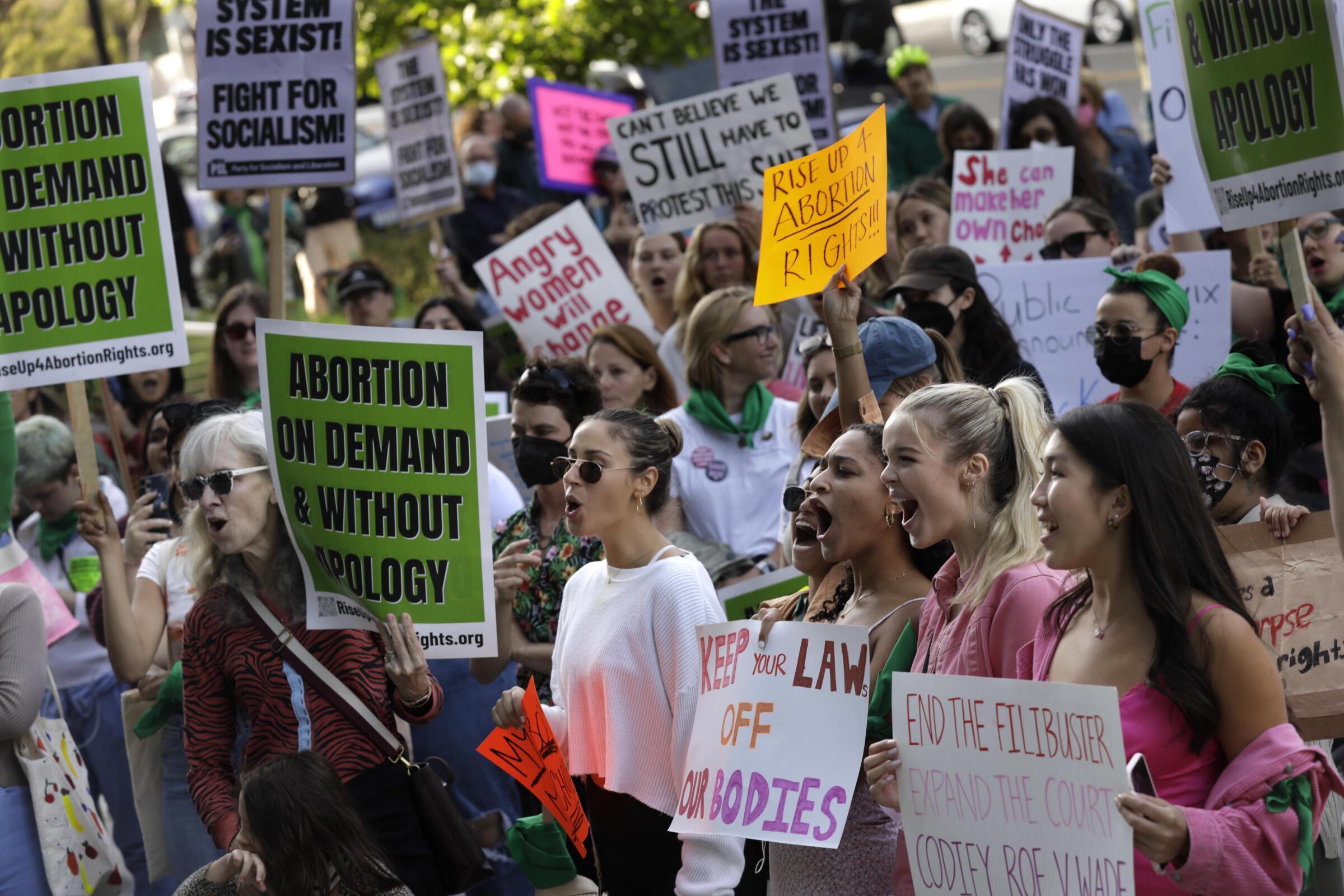Get the L.A. Times Politics newsletter
Deeply reported insights into legislation, politics and policy from Sacramento, Washington and beyond. In your inbox twice per week.
You may occasionally receive promotional content from the Los Angeles Times.

The historic Roe vs. Wade decision gave women nationwide the legal right to choose abortion, but the backlash reshaped the country’s politics. In Roe, the justices announced a broad new constitutional right to abortion that is not explicitly found in the words or the history of the Constitution.
In May, the leaked Supreme Court draft opinion overruling Roe vs. Wade caused an uproar.
On Friday, the Supreme Court announced its decision to overturn the historic abortion case, which will not only affect millions of Americans but also free states to outlaw abortion.
Here’s everything you need to know.
In a historic reversal, the Supreme Court strikes down a half-century of nationwide abortion rights in the U.S.

The logistics of accessing abortion are about to get more complicated, with at least 26 states set to ban the procedure after the fall of Roe vs. Wade.
A look back at U.S. abortion laws and the Roe vs. Wade decision.
Roe vs. Wade went from ‘settled’ law to overruled in a few years, thanks to four unexpected developments.
Legal scholars and political scientists point to major missteps at the start which left the Roe vs. Wade decision vulnerable.
Though abortion will remain legal in California, residents across the state expressed outrage at the Supreme Court’s reversal of Roe vs. Wade.
States will now be permitted to ban abortions for the first time since the landmark Roe vs. Wade decision in 1973. What does this mean in California?
California’s Constitution includes broad rights of privacy but has no explicit protection for abortion services.
‘California will not sit back. We are going to fight like hell,’ Gov. Gavin Newsom said of a report that the Supreme Court plans to overturn Roe vs. Wade.
This mom knew having another child wasn’t the right decision for her. Facing Texas’ new restrictive abortion law, she saw California as her best hope.
California’s role as a beacon of women’s healthcare rights is about to become stronger.
If the Supreme Court strikes down Roe vs. Wade, Congress could pass legislation to keep abortion legal across the country.
Fifty-five years ago this month, California enacted the nation’s most liberal abortion law. Back then, more legislators used to think for themselves, columnist George Skelton writes.
The Los Angeles Times editorial board, which is a team of opinion writers and editors, does its work separately from news reporters and editors.
“The Future of Abortion” is a series of stories about the state of abortion in America as Roe vs. Wade faces its most serious challenge in decades.
Get the L.A. Times Politics newsletter
Deeply reported insights into legislation, politics and policy from Sacramento, Washington and beyond. In your inbox twice per week.
You may occasionally receive promotional content from the Los Angeles Times.